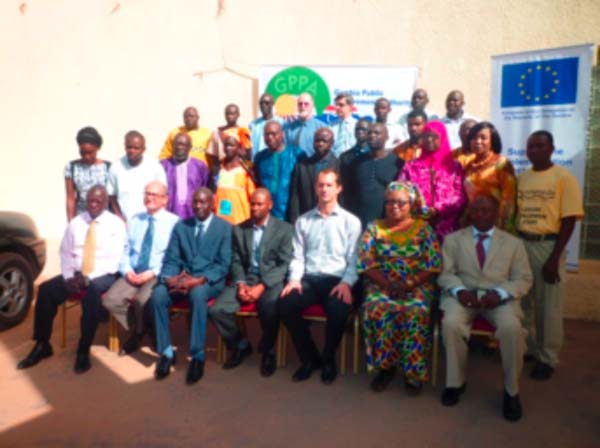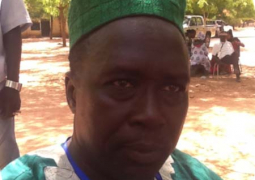
The training session, which targeted various participants from the Public Financial Management Unit of the Ministry of Finance and Economic Affairs, was held at the Ocean Bay Hotel.
In his opening statement, PS Abdoulie Jallow expressed acknowledgement of the continuing support of the EU to the implementation of Public Finance Management reforms in the area of procurement in The Gambia.
“This support, funded by the EU, is of great assistance in ensuring that our public procurement system is effective and efficient and delivers value for money,” he said.
Mr Jallow acknowledged the closing of the short-term procurement consultancy, which had been ongoing since mid-September 2014.
“The team of Mr John Blunt and Mr Serge Bertrain has achieved a great deal in their short time with us, and has set a sound direction for further procurement reform, and I sincerely thank them for their strong and enthusiastic contribution,” he stated.
PS Jallow added that the workshop would give the participants a great opportunity to understand their responsibilities, the importance of procurement, how GPA could help them to understand the key features of the ACT and to focus on ethics and anti-corruption.
Josselin Amalfi, EU project manager, representing the EU Charge d’ Affairs, said the project, in support to the procurement reform in The Gambia, is a component of the governance programme funded by the EU.
He stated that a total budget of €10 million is available for the implementation of the governance programme in The Gambia, equivalent to D500 million.
According to him, the project in support of the procurement reform is funded by the EU to the tune of € 1.4 million, equivalent to D70 million.
“This action is contributing to the Public Financial Management reform in The Gambia,” he said, adding that the project has been implemented to run for over 25 months from September 2014 to January 2017.
He said the project consultants would work closely with GPPA in areas including delivering of training workshops, revising procurement regulations and standard bidding documents, and providing advice to ensure a very smooth transition between short- and long-term capacity support.
In his welcome remarks, the Director General of GPPA, Tumbul K.Danso, said currently the authority operates a decentralised procurement system whereby procurement organizations are responsible for their own procurement with GPPA being responsible for monitoring and regulating their procurement.
Hence, procurement organizations would have to be capacitised and resources enough to ensure their full compliance with the procurement rules and that the system is both effective and efficient, he said.
With over 200 procurement organizations, this is a challenging issue for GPPA, he said.
However, he added, the GPPA Act has provision for the gradual transfer of independent procurement operations to procurement organizations on a case-by-case basis, and where sufficient capacity has been built.
He said it should be noted that decentralizing without adequate capacity might result in increase in procurement risks.
To date less than 30 procurement organizations could be considered to have the requisite capacity to undertake independent procurement out of the over 200 procurement organizations.
He further said that two-thirds of all public procurement is still being undertaken outside of GPPA, and out of a total procurement budget of D5.5 billion for the country for the year 2013, only D1.82 billion(33 per cent) was previewed by GPPA.



